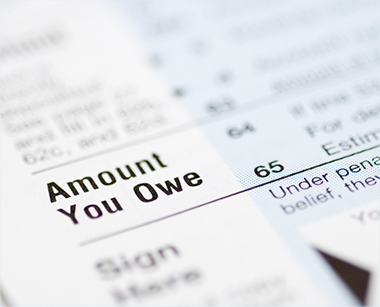There are always moves you can make to reduce your taxable income. Some of these tax-saving moves, however, must be completed by December 31. Here are several to consider:
- Tax loss harvesting. If you own stock in a taxable account that is not in a tax-deferred retirement plan, you can sell your underperforming stocks by December 31 and use these losses to reduce any taxable capital gains. If your net capital losses exceed your gains, you can even net up to $3,000 against other income such as wages. Losses over $3,000 can be used in future years. Just be sure you do not repurchase the same stock within 30 days, or the loss will be deferred.
- Take a peek at your estimated 2022 income. If you have appreciated assets that you plan on selling in the near future, estimate your 2022 taxable income and compare it to your 2021 taxable income. If your 2022 income looks like it may be significantly higher than 2021, you may be able to sell your appreciated assets in 2021 to take advantage of a lower tax rate. The opposite also holds true. If your estimated 2022 taxable income looks like it may be significantly lower than your 2021 taxable income, lower tax rates may apply if you wait to sell your assets in 2022.
 Max out pre-tax retirement savings. The deadline to contribute to a 401(k) plan and be able to reduce your taxable income on your 2021 tax return is December 31. See if you can earmark a little more money from each of your paychecks through the end of the year to transfer into your retirement savings accounts. For 2021, you can contribute up to $19,500 to a 401(k), plus another $6,500 if you’re age 50 or older. Even better, you have until April 18, 2022, to contribute to a traditional IRA and be able to reduce your taxable income on your 2021 tax return.
Max out pre-tax retirement savings. The deadline to contribute to a 401(k) plan and be able to reduce your taxable income on your 2021 tax return is December 31. See if you can earmark a little more money from each of your paychecks through the end of the year to transfer into your retirement savings accounts. For 2021, you can contribute up to $19,500 to a 401(k), plus another $6,500 if you’re age 50 or older. Even better, you have until April 18, 2022, to contribute to a traditional IRA and be able to reduce your taxable income on your 2021 tax return.- Make cash charitable contributions. If you’re like 90% of all taxpayers, you get no tax benefit from charitable contributions because you don’t itemize your personal deductions. On your 2021 tax return, however, you may contribute up to $300 in cash to a qualified charity and deduct the amount whether or not you itemize your deductions. Married taxpayers who file jointly may contribute $600. You can make your contribution by check, credit card, or debit card. Remember that this above-the-line deduction is for cash contributions only. It does not apply to non-cash contributions.
- Bunch deductions so you can itemize. Are your personal deductions near the amount of the standard deduction for 2021: $12,550 for singles, $18,800 for head of household and $25,100 for married filing jointly? If so, consider bunching your personal deductions into 2021 so you can itemize this year. For most, the easiest way is to bunch two years of charitable contributions into a single year. These can include gifts of appreciated stock where you get to deduct the fair market value without paying capital gains tax.
5 Surprising Taxable Items
 Wages and self-employment earnings are taxable, but what about the random cash or financial benefits you receive through other means? If something of value changes hands, you can bet the IRS considers a way to tax it. Here are five taxable items that might surprise you:
Wages and self-employment earnings are taxable, but what about the random cash or financial benefits you receive through other means? If something of value changes hands, you can bet the IRS considers a way to tax it. Here are five taxable items that might surprise you:
1. Scholarships and financial aid. Applying for scholarships and financial aid are top priorities for parents of college-bound children. But be careful — if any part of the award your child receives goes toward anything except tuition, it might be taxable. This could include room, board, books, travel expenses or aid received in exchange for work (e.g., tutoring or research).
Tip: When receiving an award, review the details to determine if any part of it is taxable. Don’t forget to review state rules as well. While most scholarships and aid are tax-free, no one needs a tax surprise.
2. Gambling winnings. Hooray! You hit the trifecta for the Kentucky Derby. But guess what? Technically, all gambling winnings are taxable, including casino games, lottery tickets and sports betting. Thankfully, the IRS allows you to deduct your gambling losses (to the extent of winnings) as an itemized deduction, so keep good records.
Tip: Know when the gambling establishment is required to report your winnings. It varies by type of betting. For instance, the filing threshold for winnings from fantasy sports betting and horse racing is $600, while slot machines and bingo are typically $1,200. But beware, the gambling facility and state requirements may lower the limit.
3. Unemployment compensation. Unfortunately the IRS doesn’t give you a break on the taxes for unemployment income. Unemployment benefits you receive are taxable.
Tip: If you are collecting unemployment, you can either have taxes withheld and receive the net amount or make estimated payments to cover the tax liability.
4. Crowdfunding. A popular method to raise money for new ventures or to support a special cause is crowdfunding through websites. Whether or not the funds are taxable depends on two things: your intent for the funds and what the giver receives in return. Generally, funds used for a business purpose are taxable and funds raised to cover a life event (e.g., special causes or medical assistance) are considered a gift and not taxable to the recipient.
Tip: Prior to using these online tools to raise money, review the terms and conditions and ask for a tax review of what you are doing. If you need to account for taxes, reserve some of what you raise for this purpose.
5. Cryptocurrency. Cryptocurrencies like Bitcoin are considered property by the IRS. So if you use cryptocurrency, you must keep track of the original cost of the coin and its value when you use it. This information is needed so the tax on your gain or loss can be properly calculated. Remember, the tax rate on property can vary if you own the cryptocurrency more than a year, so record all dates.
Tip: For those considering replacing cash with things like Bitcoin, you need to understand the gain or loss complications. For this reason, many people using cryptocurrency do so for speculative investment purposes.
When in doubt, it’s a good idea to keep accurate records so your tax liability can be correctly calculated and you don’t get stuck paying more than what’s required.
 Now is the ideal time to schedule a tax planning session. Your 2017 tax return outcome is still fresh, and it’s early enough in the year to take advantage of the numerous tax law changes taking place in 2018. Here’s a brief overview of some of the new tax issues that you need to plan for now.
Now is the ideal time to schedule a tax planning session. Your 2017 tax return outcome is still fresh, and it’s early enough in the year to take advantage of the numerous tax law changes taking place in 2018. Here’s a brief overview of some of the new tax issues that you need to plan for now.
Income – Tax rates for both individuals and small businesses have changed substantially. Income tax deductions have also changed drastically, including a nearly doubling of the standard deduction and elimination of personal exemptions and miscellaneous itemized deductions.
It’s important to review your income tax withholding schedule to see where you fall in the new income tax bracket structure. Small adjustments here could save you hundreds.
Bunching – Because of the changes to the deductions structure, using itemized deductions may now require bunching two or even three years of expenses into one tax year. Things like donations to charity and medical expenses that you may have spread across several years are now better bunched into a single year to maximize your tax savings.
If you typically take care of medical expenses or charitable donations at a regular time every year, hold off this year until you have a new tax-efficient plan.
SALT (State and local taxes) – There’s now a $10,000 combined total cap on deductions of state and local income, sales and property taxes, which is going to impact a lot of people, especially in high-tax states. This may be a big factor to account for if you’ve relied on this deduction in the past.
Get an analysis done to see how much larger your tax bill is going to be because of the cap on SALT taxes. There may not be much you can do about it, other than changing where you live and own property, but you’ll need to have a clear picture of how it will impact your tax return in 2018.
Mortgage interest changes – There are several new rules changing how mortgage interest is deducted. You can no longer deduct the interest on mortgage indebtedness greater than $750,000. And you can no longer deduct interest on mortgage indebtedness that wasn’t spent directly on buying, building or substantially improving your home.
If you have previously claimed a home equity loan interest deduction, you’ll need to review how this will affect your itemized deductions.
These are just a few examples of things that you’ll need to review in the wake of the largest tax law change in more than 30 years. Take some time this summer to make sure you have a plan in place.